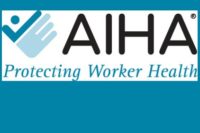Marriott International wins award for having a “psychologically healthy” workplace

Training and development efforts that are informed by psychological research and theory and adapted to fit the needs of associates have resulted in Marriott International being recognized for having a Psychologically Healthy Workplace – an award given annually by the American Psychological Association (APA). The honor is intended to highlight the effective application of psychology in the workplace.
What Marriott Does
According to the APA, Marriott’s training and career development initiatives are ingrained in the corporation’s employee well-being program, which reaches 700,000 people on six continents who wear the Marriott name badge. Company human resource executives, who are led by a team of industrial-organizational psychologists, developed a program of personalized learning that has blended psychological research, evidence-based learning modalities, psychology-informed assessments and data analysis into the design, content and evaluation of training programs. Marriott has adapted its training to fit the needs of associates (such as offering shorter, digital, micro-learning opportunities) and pressing issues, such as a recent effort to train all associates at every level of the company in how to identify and respond to signs of human trafficking on its properties.
Other honorees
Four other employers will receive APA’s 2018 Psychologically Healthy Workplace Award at a ceremony on March 22 for their comprehensive sets of practices that support a healthy, high-performing work environment. They are: Alberta School Employee Benefit Plan (Alberta, Canada), Federal Detention Center, Honolulu (Hawai’i), Four Seasons Resort Hualalai (Hawai’i) and Maplewave (Nova Scotia, Canada). The awards are presented annually by APA’s Center for Organizational Excellence.
Alberta School Employee Benefit Plan is a not-for-profit organization that offers health insurance and insurance administration services to the education sector. ASEBP’s workplace culture is fueled by voluntary, employee-led initiatives, such as a holiday toy drive and quarterly life event celebrations for employee milestones and career accomplishments. The organization also offers voluntary, on-site mental health first aid training. The organization encourages professional development by subsidizing professional association memberships for employees and providing a yearly allowance to further their education. Nearly all staff (98 percent) said in an employee survey that they are treated with respect and dignity.
Federal Detention Center, Honolulu, is a federal Bureau of Prisons detention facility that houses nearly 400 inmates. Staff are encouraged to provide input through an “Ideas for Dollars” initiative, in which suggestions that can improve operations can be rewarded with bonuses or an increase in pay. All new hires are trained in the risk factors of burnout, and three full-time psychologists are available for staff consultation. To provide immediate recognition, supervisors carry chits that they can hand out as they interact with employees to acknowledge outstanding performance.
Four Seasons Resort Hualalai is a luxury resort in a predominantly rural location that provides its employees with the autonomy necessary to make decisions and solve problems in an effort to enhance guest experiences. An on-site wellness center for employees focuses on both conventional and culturally informed services. Employees receive an additional perk of complimentary rooms — along with discounted food and beverages — at any Four Seasons property in the world. Staff recognition includes “Aloha Spirit,” a monthly event in which two employees nominated by coworkers are recognized for their exceptional work. In a confidential employee survey, 92 percent said the resort is a great place to work, a belief further supported by a decline in turnover from 18 percent in 2014 to 13 percent in 2017.
Maplewave is a technology company that specializes in telecommunications for the retail sector. Maplewave’s profit-sharing program helps keep employees invested in the business’s performance. Along with a comprehensive group benefits package, employees receive a health spending account of up to $300 per year for health-related expenses that may not be covered by insurance. Maplewave’s policy of promoting from within has allowed numerous employees to advance their careers. The company’s comprehensive performance review program is an ongoing, collaborative process between managers and staff. This pays off as the employee satisfaction rate was 81 percent and turnover was just 2 percent in 2017.
Employee perceptions
On average, at the four companies receiving Psychologically Healthy Workplace Awards, 83 percent of employees say the organization values training and development, and 88 percent say their organization regularly communicates with employees, according to an employee survey conducted as part of the award application. Well-being plays a central role in these organizations, with 87 percent of employees reporting that their organization promotes and supports a healthy lifestyle. Nearly 9 in 10 say they recommend their organization as a good place to work (86 percent) and feel motivated to do their best (89 percent).
“These employers are weaving a commitment to well-being and performance into the fabric of their organizations,” said David W. Ballard, PsyD, MBA, head of APA’s Center for Organizational Excellence. “In times of change and uncertainty, these forward-thinking employers are building organizational cultures where employees are well equipped to tackle emerging challenges.”
The Psychologically Healthy Workplace Awards recognize organizations for their efforts to foster employee well-being while enhancing organizational performance. The program has both local and national components. APA’s award program spans North America and is designed to showcase the best from among the winners recognized by APA’s affiliated state, provincial and territorial psychological associations.
Nominees are evaluated on their workplace practices in the areas of employee involvement, health and safety, employee growth and development, work-life balance and employee recognition. Additional factors that are considered include employee attitudes and opinions, the role of communication in the organization and the benefits realized in terms of both employee health and organizational performance. Awards are given to for-profit and not-for-profit organizations as well as government, military and educational institutions.
Looking for a reprint of this article?
From high-res PDFs to custom plaques, order your copy today!




